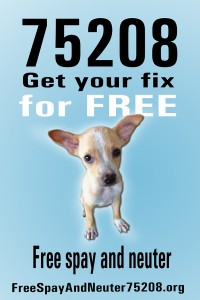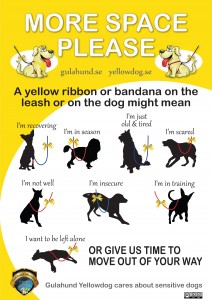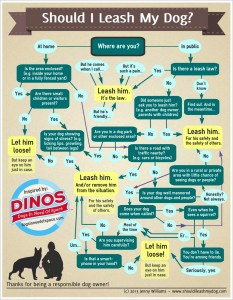Complying with animal laws is a sticky subject. Cultures, language barriers, and resources can all be barriers to compliance. But we don’t let people break other laws for cultural or socioeconomic reasons. You have to have a driver’s license and insurance, you can’t drink and drive, and you have to spay and neuter your pets (unless you have an intact license). Owning a pet in an urban neighborhood is a right governed by laws and responsibilities.The laws are in place to make safer communities where residence and families can have a great qualify of life. When neighbors are complacent or ignore the laws, we endanger our families and our pets.
When we don’t spay and neuter our pets, they are statistically more likely to bite and or escape. When we allow dogs to roam, they breed and form dangerous packs. Dog packs and loose dogs chase bike riders, kids, cats, and other small animals and cause car accidents. Loose dogs fight for resources and will fight and critically injure each other. And worst of all, loose dogs make more loose dogs. One loose dog can make 600 more dogs over a three year period. Before you know it, loose dogs are everywhere. Let’s take animal issues and our community’s safety seriously!
Respect your neighbors, your pets, and the law by being a responsible pet owner. Here are the basics of the law (we list the specifics of the law further down in the post)
- Register and vaccinate your pets
- Spay or neuter your pets
- Walk your pets on a leash at all times
- Properly confine your pets
- Limit your number of pets
Keep your pets and families safe by:
- Reporting loose dogs and dangerous dogs to 311
- Report the illegal sale of puppies and kittens to 311 and 911
- Report dog fighting, abuse, neglect, and puppy mill abuse to 311, the SPCA, and 911
Education and intervention are the first steps to making great neighbors and great neighborhoods for ourselves and for our pets. Please share our resources with your neighbors and let’s move forward a spay and neuter culture and a culture of compliance for animal laws. This will turn around animal issues in our communities and make safe places for us to live and thrive. Where should we start?
There are three areas of focus YOU can help with:
- Education
- Intervention
- Enforcement
If any of your neighbors are having trouble complying with animal laws due to lack of resources, please reach out to Dallas Animal Services (DAS) and the Dallas Animal Companion Project (DCAP). DAS and DCAP have programs that can help with everything on this list down to help fixing a fence. We have also included links to low and no cost resources to share with your neighbors.
The 2014 Dallas Animal Services’ budget has been restored. That is not to say that the DAS budget is not still tight, it is. But public safety should be a high priority and a base service of Animal Services. Your tax dollars allow you to expect help and cooperation from DAS with compliance and loose animals issues. Picking up loose dogs is the first step to stopping the breeding cycle that makes more loose unwanted dogs. Loose dogs are a major safety concern for our city council. If you are not getting the support and response you need from DAS in regard to loose animals, contact your city council representative.

To help support proactive conversations with your neighbors, your neighborhood associations, organizations, churches, PTAs, schools, etc. we have posted several flyers you can print and share:
- Straight Talk About Nuts
- Your Pets Your Responsibilities (also listed below) The flyer is in Spanish and English
If trying to educate your neighbors to the spirit of the law and letting them know about available resources doesn’t encourage them to get in compliance with the law, you can request a DAS officer visit to do the same. If an educational intervention from DAS doesn’t work, then the DAS officer has the option to write tickets or seize animals if they are in danger. We are the animals’ voices – we should not hesitate to help them.
Here are The Specifics Of The Law:
Vaccination and Registration – Dogs and cats must be vaccinated against rabies and wear a City of Dallas registration tag. Dallas Animal Services (DAS) will issue your pet’s tag when you provide the vaccination certificate from your veterinarian. You can do this online or at DAS. The annual registration fee is $7 for spayed or neutered animals, and $30 for unaltered animals. Senior citizens may register up to three (3) altered animals at no charge. It is recommended best practices for your pet to receive additional vaccinations on an annual basis. This is not the law, but again, will protect your pet and your family further. These vaccinations guard against deadly animal diseases like parvo, distemper, lepto etc.
Low cost vaccinations are available at the SPCA, DAS, and at many locations throughout the city. With a large population of stray and loose animals, it is especially important to vaccinate your animals annually. Here is a link to many available low cost resources
Spaying and Neutering – Dogs and cats six (6) months or older must be spayed or neutered, with certain exceptions as outlined in Chapter 7. A special Intact Animal Permit may be purchased and must be updated YEARLY to qualify for an exception. Low cost spay and neuter resources are available through: the SPCA, the Spay Neuter Network, and other resources.
Did you know that chained, unneutered males top the list of dogs most likely to attack? Unneutered males are right behind them and are statistically more likely to bite family members. Keep your family and your neighborhood safe. Promote a spay and neuter culture in the city and expect compliance from your neighbors. Read more about the advantages of spay and neutering your pets on our link to Straight Talk About Nuts.
When should you fix your pet? You can “Fix at Four” months old. Consult with your veterinarian to know what is the right time for your pet. There are many advantages of spaying and neutering your pets – read our link to “Straight talk about nuts”
Confining Your Pet – Animals must be confined to their owner’s property. If your dog is confined outside, even for just a short time, it must have a fenced yard or other structure that will prevent it from escaping. Within this area, each adult dog must have at least 150 square feet of space. Also, each dog must have access to food, shelter and water. It is against the law to chain or tether an unsupervised dog (see chapter 7)
If you see a loose pet, please report it to 3-1-1 via phone or the 311 app. Or call 214-670-5111. Loose dogs can be hit by cars, fight with other dogs, chase bikers, kill cats, and attack children. Please be diligent about reporting loose dogs. Feel free to use this handout to talk to your neighbors about confining their dogs – it is a safety and quality of life issues for pets and people alike.
Walking With Your Dog – When you’re walking your dog, always have it on a leash – even in a public park. It’s AGAINST THE LAW to walk your dog off-leash unless you’re at a designated dog park. Many dogs do not like other dogs approaching them. Don’t be the guy that runs after their dog yelling, “my dog is friendly” as your dog runs up on a leashed dog. Some dogs are old, or less social, fearful, blind – you don’t know, so be considerate and follow the law. And some dogs will become frightened or aggressive when the see you running and hear you yelling after your dog when it will not come back on command. It should be a dog owner’s choice to interact with another dog. Check out DINOS and The Yellow Dog Project to understand more about why everyone does not want to say hello to your loose dog. Here’s an awesome handout called Should I leash my dog – you can print it and share.
Riding With Your Dog in a Truck Bed – It is also against the law to carry an animal in a flat bed or pick-truck unless the animal is in a carrier that is secured as outline in Chapter 7.
Dog Poop – When walking remember your doggie poop bags. It is against the law to leave your dog poop on the ground. Dog poop on the ground is more than just annoying and smelly when it gets on your shoes, it gets in the storm water that ends up in our waterways an lakes, so pick up the poop! Dog poop is the #3 polluter of our great nation’s lakes, rivers and streams, and is full of harmful bacteria – some of which can spread disease to humans. So pick up the poop and throw it in the trash!
Selling or Auctioning Animals – We are making a readers digest type statement here, but it is generally against the law to sell unvaccinated unregistered animals or raffle or auction an animal as a prize. This includes ROADSIDE SALES OF PUPPIES, kittens and other animals, as well as any type of raffle, drawing or other fundraising event.
If you witness the illegal sale of animals on the side of the road, PLEASE REPORT the sale by call both 3-1-1 and 9-1-1. Refer to city code 7-72. These people are not legitimate breeders and they are breaking a law and subject to being ticketed or arrested. Generally, road side puppies have not been properly vetted and vaccinated and are at risk of dying from common disease like parvo and distemper (after you buy them). Please intervene on the puppy’s behalf. You could be saving a puppy from a horrible unnecessary death.
Animal Cruelty – Animal cruelty is A FELONY in Texas. Dallas Animal Services enforces state statutes as well as city laws against animal abuse, neglect, abandonment and cruelty. If you suspect cruelty or neglect – please report it to 3-1-1 or 214.770-5111 or to the SPCA. If you witness animal abuse, report it to 9-1-1. Need an incentive? The Human Society offers a $5,000 reward for tips that lead to an arrest for dog fighting and or puppy mill abuse.
Dangerous Dogs – The city can impose additional requirements (like high levels of liability insurance) on owners of dangerous dogs, including the removal or destruction (that means euthanize) of a dog that has killed or seriously injured a human (or dog). Dallas Animal Services conducts hearings and administers penalties and restriction in dangerous dog cases. This makes it even more important to walk your dog on a leash and to report loose dogs and people who refused to leash their dogs – ultimately, it is the dog that will suffer if there is a serious incident.
Pet Limits – Pet limits for owners living in a single-family, detached house may have up to six (6) cats, dogs, or combination of cats and dogs. If you live in an apartment, condo, or other residence with a common wall, the limit is four (4). Rescues and foster families may apply for and obtain a special permit to extend the pet limits. Encourage individual rescuers to get special permits if they have more animals than the law allows. That way they can be connected to resources that can help so that they don’t become overwhelmed with the responsibility of the growing number of rescue animals.
Be a responsible pet owner and neighbor. It’s good for your pet and your family, and it’s the law!
Support a City Wide Spay and Neuter Culture
Advocate – Educate – Volunteer – Foster – Adopt – Donate – Report Loose Dogs








